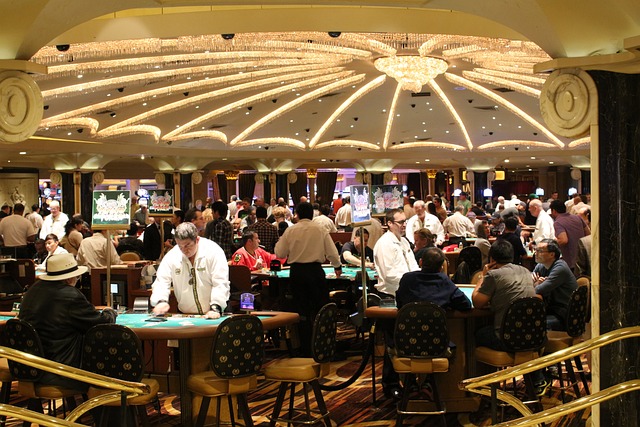As the sun sets over the bustling streets of Ho Chi Minh City, a different kind of excitement begins to stir. The soft chime of slot machines and the clatter of poker chips resonate through sparkling new casinos, drawing both locals and tourists into their vibrant embrace. In recent years, Vietnam has witnessed a remarkable transformation in its gambling landscape, emerging as an enticing hotspot for gaming enthusiasts across Asia. But what lies beneath this glittering exterior? Join us as we delve into the rise of gambling culture in Vietnam, exploring its evolution amidst intricate legal restrictions that shape how this phenomenon unfolds.
A Rich History of Gambling in Vietnam
Vietnamese people have a long history of enjoying games of chance. Popular traditional games like đá gà (cockfighting) and bài chòi (a type of card game) have been played for centuries. However, when it comes to modern gambling, like casinos and sports betting, the government has maintained a tight grip. Despite this, there’s no denying that gambling continues to be a popular activity for locals, even if some choose to gamble illegally or offshore.
The Legal Framework for Gambling in Vietnam
In Vietnam, the laws regarding gambling are strict and often complex. The government has historically prohibited most forms of gambling for Vietnamese citizens, but it has opened the door slightly for international tourists. In 2017, the Vietnamese government relaxed some laws, allowing locals to gamble under strict conditions, but most of the action remains confined to foreigners.
Under Vietnamese law, gambling is generally restricted to the state lottery, licensed horse and greyhound racing, and betting on international football matches. Casino gambling is officially limited to foreigners, though a few select Vietnamese nationals can now enter some casinos as part of a pilot program.

Who Can Legally Gamble in Vietnam?
Before 2017, only foreigners could legally gamble in Vietnam’s casinos. However, a trial program was launched, allowing Vietnamese citizens to gamble at two casinos, provided they met specific criteria.
According to the Law on Gambling, Vietnamese citizens over the age of 21 who have a monthly income of at least 10 million VND (approximately $430) and no criminal record may enter and gamble at casinos in designated areas. These designated areas include Phu Quoc Island, the Van Don Special Economic Zone, and the future Hoiana Integrated Resort in Central Vietnam. Additionally, Vietnamese citizens must pay an entrance fee of 1 million VND (approximately $43) for a 24-hour pass or 25 million VND (roughly $1,075) for a month-long pass.
It should be noted that online gambling is still illegal in Vietnam for both citizens and foreigners. However, there are reports of some underground online gambling activities taking place. Sites like hello88 nhà cái and many others provide online gambling services to Vietnamese players, but the government does not regulate these activities and may carry legal risks for players.
Casinos in Vietnam: A Growing Industry
While gambling laws are stringent, the casino industry in Vietnam has been growing. Several luxury casino resorts have been built along the coast, attracting foreign tourists. The Grand Ho Tram Strip, located in Vung Tau, is one of the most well-known casino resorts, featuring games like poker, blackjack, and roulette. Other casinos, like the Corona Resort & Casino on Phu Quoc Island, have also become popular destinations.
These resorts are designed to appeal to the growing number of international visitors who come to Vietnam for the beautiful beaches, rich culture, and vibrant nightlife. While the locals can still only gamble at a few select venues, these resorts offer tourists plenty of entertainment and gaming options.
The Future of Gambling in Vietnam
Vietnam’s casino industry is still in its infancy compared to other Southeast Asian nations like Singapore and Cambodia. However, the Vietnamese government is beginning to see the potential economic benefits of expanding its gambling laws. With ongoing discussions about relaxing the rules further, we could see more locals gaining access to casinos shortly.
Additionally, as the tourism industry continues to boom, Vietnam will likely expand its luxury casino resorts to attract high-rollers worldwide. This growth could create new opportunities for both locals and foreigners alike.
Gambling in Vietnam is a mix of rich cultural traditions and modern regulations. With its burgeoning casino industry and evolving legal framework, Vietnam is positioning itself as a player in the regional gambling market. While access for locals is still tightly controlled, the future could bring more flexibility and opportunity for Vietnamese citizens to enjoy games of chance legally.